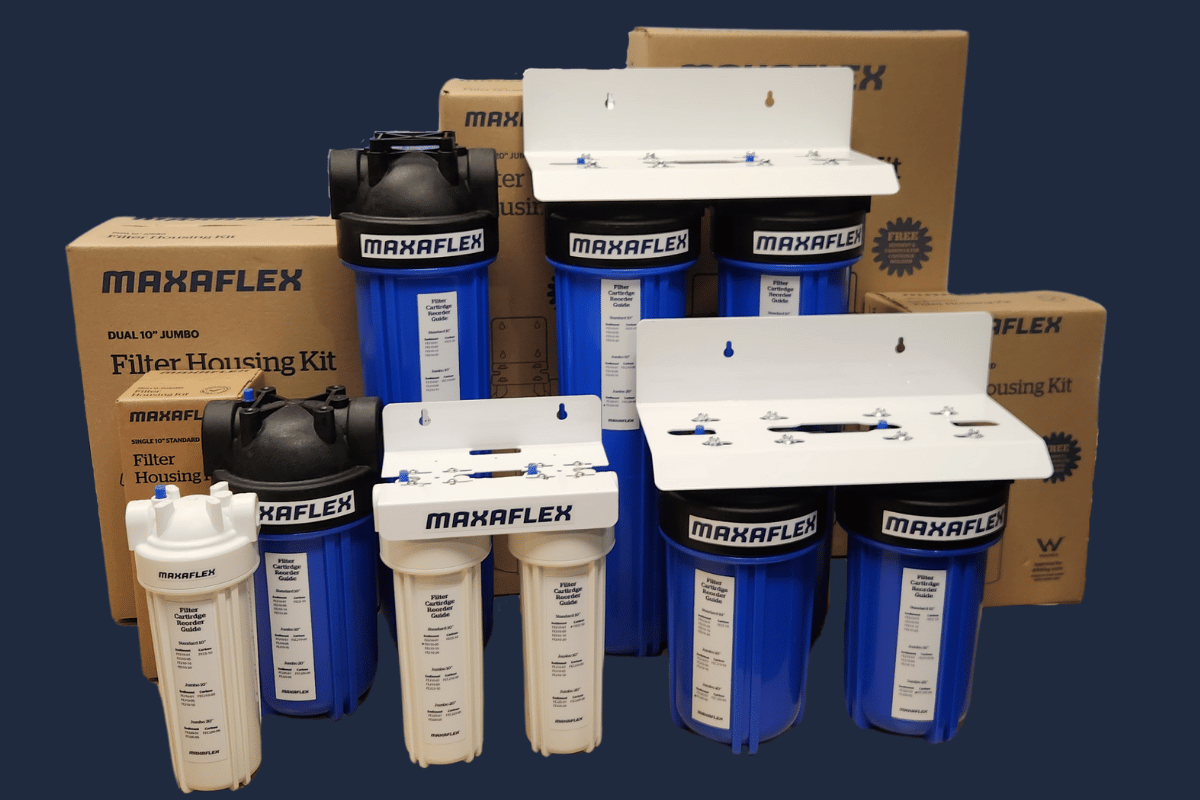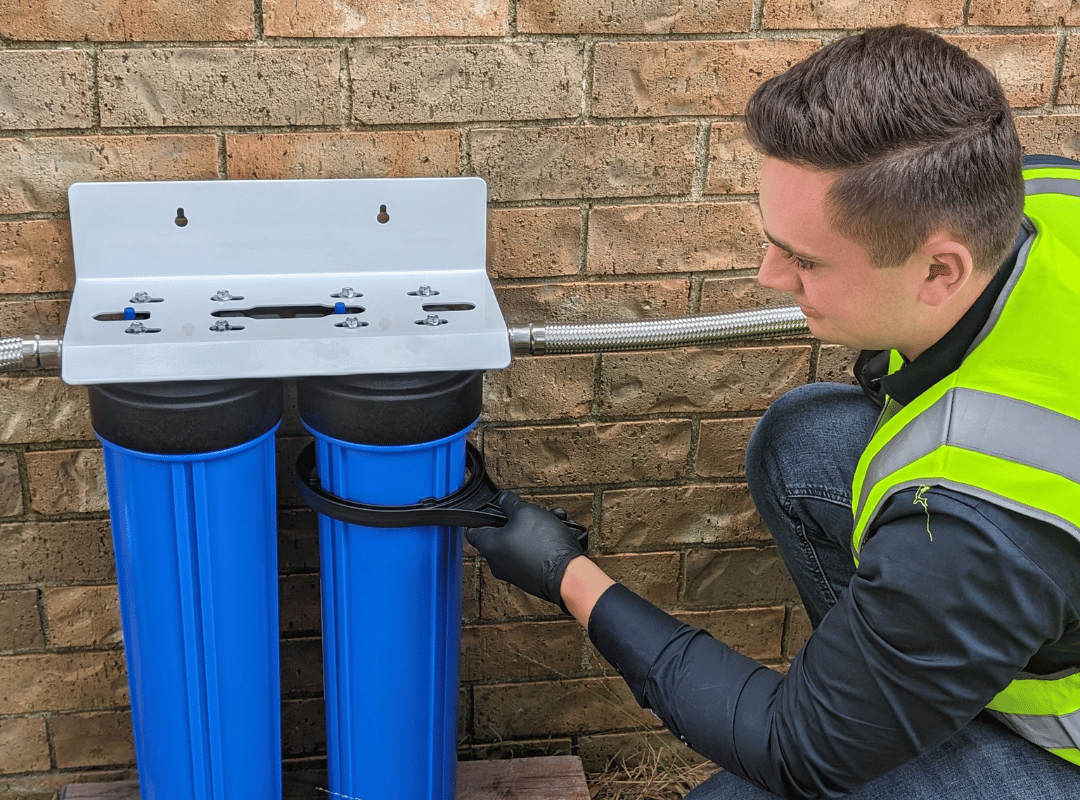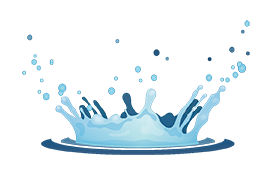Pure & Refreshing: Discover the Best Water Filtration System for Your Home
.png)
.png)
Access to clean, pure water is a fundamental human need and a critical aspect of maintaining good health. Water makes up around 60% of our body weight and plays a vital role in numerous physiological processes, including regulating body temperature, aiding digestion, and transporting nutrients throughout the body.
Consuming contaminated or impure water can have serious consequences for our well-being. Exposure to various pollutants, such as heavy metals, pesticides, and microbial pathogens, can lead to a range of health issues, including gastrointestinal problems, neurological disorders, and even long-term chronic diseases. Moreover, the use of unfiltered water for cooking, bathing, and other household activities can also expose us to these harmful contaminants, making it essential to have a reliable water filtration system in place.
Investing in a high-quality water filtration system is not only about improving the taste and odor of your water but also about safeguarding your family's health and well-being. By removing impurities and providing clean, pure water, you can enjoy the numerous benefits of hydration, including improved skin health, increased energy levels, and a reduced risk of various health problems. Ensuring access to clean water is a crucial step in promoting a healthier lifestyle and a more sustainable future for your household.

Tap water, while generally safe for consumption, can often contain a variety of contaminants that can affect its quality and safety. These contaminants can come from various sources, including industrial and agricultural runoff, outdated water infrastructure, and natural geological formations.
One of the most common contaminants found in tap water is chlorine, which is added by municipalities to disinfect the water and kill harmful microorganisms. While effective in this regard, chlorine can also impart an unpleasant taste and odor, and has been linked to the formation of potentially carcinogenic byproducts.
Another prevalent contaminant is lead, which can leach into the water from aging pipes and plumbing fixtures. Exposure to lead, even in small amounts, can be particularly harmful to children, as it can impair cognitive development and lead to a range of neurological problems.
Nitrates and nitrites, often found in agricultural runoff, can also pose a health risk, especially for infants, as they can interfere with the body's ability to transport oxygen. Microbiological contaminants, such as bacteria, viruses, and protozoa, can also be present in tap water, potentially causing waterborne illnesses like giardiasis and cryptosporidiosis.
Additionally, the presence of heavy metals, such as arsenic and mercury, as well as various organic compounds like pesticides and industrial solvents, can also be a concern in some areas. These contaminants can have a range of adverse effects on human health, from skin irritation to cancer and developmental issues.
Addressing these contaminants and ensuring the purity of your home's water supply is crucial for maintaining the health and well-being of your family. By understanding the common water quality issues in your local area, you can make an informed decision about the best water filtration system to meet your needs.
When it comes to ensuring the purity and safety of your home's water supply, there are several types of water filtration systems available, each with its own unique features and capabilities. Understanding the different types of filtration systems can help you make an informed decision about the best solution for your household.
One of the most common types of water filtration systems is the activated carbon filter. These filters work by adsorbing a wide range of contaminants, including chlorine, volatile organic compounds (VOCs), and certain heavy metals, such as lead and mercury. Activated carbon filters are often used in point-of-use (POU) systems, such as under-sink or countertop models, as well as in whole-house filtration systems.
Another popular type of filtration system is the reverse osmosis (RO) system. RO filters use a semi-permeable membrane to remove a wide range of contaminants, including dissolved salts, minerals, and even microorganisms. These systems are highly effective in producing clean, pure water, but they also tend to be more expensive and require more maintenance than other filtration options.
Ultraviolet (UV) light filtration systems are also gaining popularity due to their ability to disinfect water by destroying the DNA of microorganisms, such as bacteria and viruses, without the use of chemicals. UV systems are often used in conjunction with other filtration methods to provide a comprehensive solution for water purification.
Ion exchange filters, which use charged resin beads to remove certain contaminants, such as hardness-causing minerals and nitrates, are another type of water filtration system. These filters are particularly useful in addressing specific water quality issues, such as hard water or high nitrate levels.
Finally, some water filtration systems combine multiple technologies, such as a combination of activated carbon and reverse osmosis, to provide a more comprehensive solution for water purification. These hybrid systems can be highly effective in removing a wide range of contaminants, but they may also be more complex and costly than single-technology systems.
When it comes to choosing the best water filtration system for your home, there is no one-size-fits-all solution. Each type of filtration system has its own unique advantages and disadvantages, and the optimal choice will depend on a variety of factors, including your specific water quality concerns, budget, and personal preferences.
Reverse osmosis (RO) systems are generally considered the most comprehensive and effective water filtration solution, as they can remove a wide range of contaminants, including dissolved salts, heavy metals, and microorganisms. However, RO systems can be more expensive than other options and can also produce a significant amount of wastewater during the filtration process.
Activated carbon filters, on the other hand, are a more affordable and straightforward solution for improving the taste and odor of water by removing chlorine and other organic compounds. These filters are relatively easy to maintain and can be installed as point-of-use or whole-house systems. However, they are not as effective as RO systems in removing certain contaminants, such as dissolved minerals and salts.
Ultraviolet (UV) filtration systems offer a chemical-free and environmentally friendly approach to water disinfection, effectively destroying microorganisms without the use of added chemicals. These systems are particularly useful in areas with known issues related to waterborne illnesses. However, they do not remove other types of contaminants, and they require regular maintenance to ensure optimal performance.
When comparing these different water filtration systems, it's important to consider not only the specific contaminants you need to address but also factors such as installation requirements, ongoing maintenance costs, and the overall impact on your household's water usage and budget. By carefully weighing these factors, you can make an informed decision and choose the best water filtration system to meet your family's needs.
Choosing the right water filtration system for your home can be a daunting task, as there are numerous options available, each with its own unique features and capabilities. To make an informed decision, it's essential to consider several key factors that will help you determine the best solution for your specific needs.
One of the most important factors to consider is the quality of your local water supply. By understanding the specific contaminants present in your water, you can select a filtration system that is designed to address those issues effectively. This may involve testing your water or consulting with local water authorities to obtain a comprehensive water quality report.
Another crucial factor is the size and layout of your home, as this will determine the type of filtration system that will work best for your needs. For example, if you have a larger home or multiple bathrooms, a whole-house filtration system may be the most practical solution, whereas a smaller household may be better served by a point-of-use system, such as an under-sink or countertop model.
The overall cost of the filtration system, including both the initial investment and ongoing maintenance expenses, is also an important consideration. While more advanced and comprehensive filtration systems may come with a higher price tag, they may also provide greater long-term value by reducing the need for frequent filter replacements and ensuring a consistent supply of clean, pure water.
Additionally, factors such as the ease of installation and the system's energy efficiency can also play a role in your decision-making process. Some homeowners may prefer a more DIY-friendly option, while others may prioritize a system that minimizes the impact on their energy bills.
By carefully weighing these factors and aligning them with your specific water quality concerns and budget, you can make an informed decision and choose the best water filtration system to meet the needs of your household.
Proper installation and ongoing maintenance are crucial for ensuring the long-term performance and effectiveness of your water filtration system. Whether you opt for a point-of-use or whole-house system, it's important to follow the manufacturer's instructions carefully to ensure a successful installation and to maintain the system according to their recommendations.
For point-of-use systems, such as under-sink or countertop models, the installation process is typically relatively straightforward and can often be completed by the homeowner with basic plumbing skills. These systems typically require minimal ongoing maintenance, with the filter cartridges needing replacement every 6-12 months, depending on usage and water quality.
Whole-house filtration systems, on the other hand, may require more complex installation, as they often involve connecting to the main water supply line and can require additional components, such as pre-filters or booster pumps. In many cases, it's advisable to have a professional plumber or water treatment specialist handle the installation to ensure proper integration with your home's plumbing system and to minimize the risk of leaks or other issues.
Regardless of the type of filtration system you choose, regular maintenance is essential for maintaining its effectiveness and ensuring the continued delivery of clean, pure water. This may include tasks such as filter replacements, membrane cleanings, and UV lamp replacements, depending on the specific system. Failing to perform these maintenance tasks can lead to a gradual decline in the system's performance and potentially even the introduction of new contaminants into your water supply.
By following the manufacturer's recommended maintenance schedule and using genuine replacement parts, you can help ensure that your water filtration system continues to operate at peak efficiency, providing your family with a reliable source of clean, safe, and great-tasting water for years to come.

In today's world, access to clean, pure water is more important than ever. With the increasing concerns over the quality of tap water and the potential health risks associated with contaminants, investing in a reliable water filtration system is a wise choice for any homeowner.
Through our comprehensive analysis of the various types of water filtration systems available, we've highlighted the unique features and capabilities of each, allowing you to make an informed decision based on your specific water quality needs and budget. From reverse osmosis systems that remove a wide range of dissolved contaminants to activated carbon filters that improve the taste and odor of your water, there is a solution to suit every household.
By considering factors such as the size of your home, the installation requirements, and the ongoing maintenance costs, you can find the perfect water filtration system to ensure your family's access to clean, refreshing water. Whether you opt for a point-of-use system or a whole-house solution, proper installation and regular maintenance are crucial for maintaining the system's performance and longevity.
Ultimately, the decision of which water filtration system to choose comes down to your personal preferences, your local water quality, and your commitment to providing your family with the best possible drinking water. By taking the time to research and evaluate your options, you can make an informed decision and enjoy the numerous benefits of clean, pure water in your home.
So, what are you waiting for? Discover the best water filtration system for your home and say goodbye to impurities and hello to a healthier, more refreshing lifestyle.

Call us on (02) 4271 2220
email us here or complete the order form below